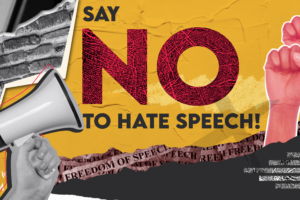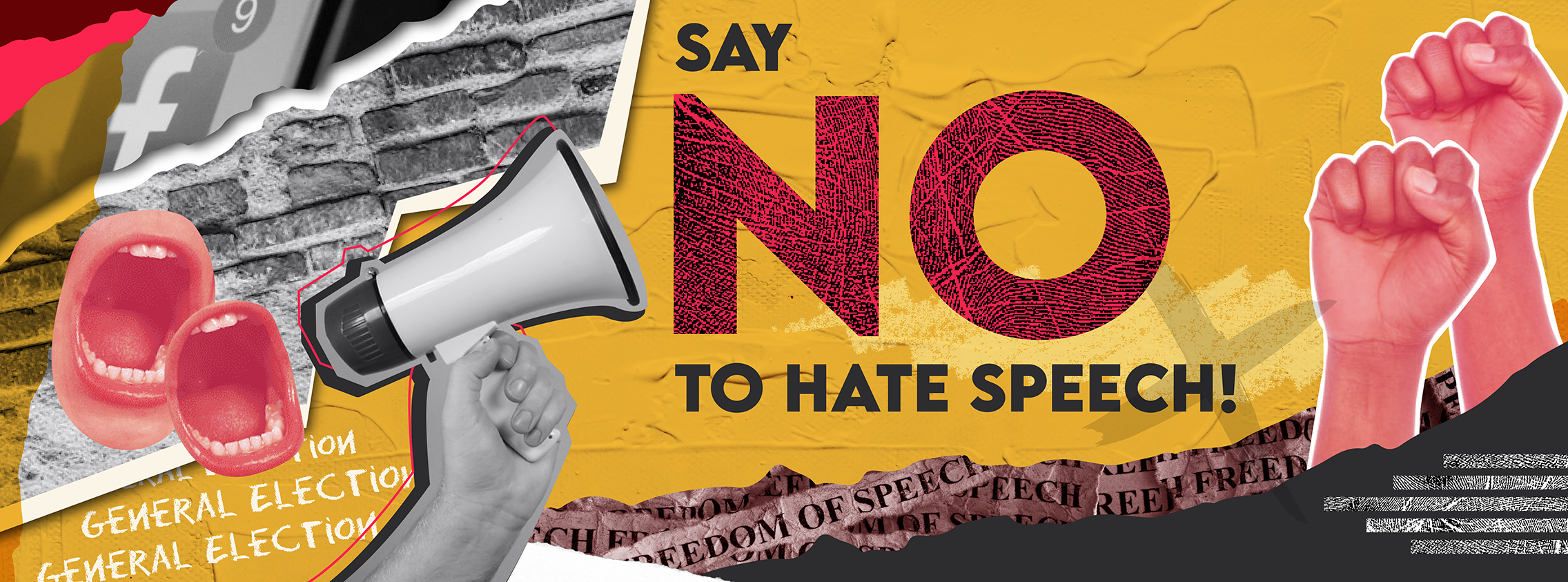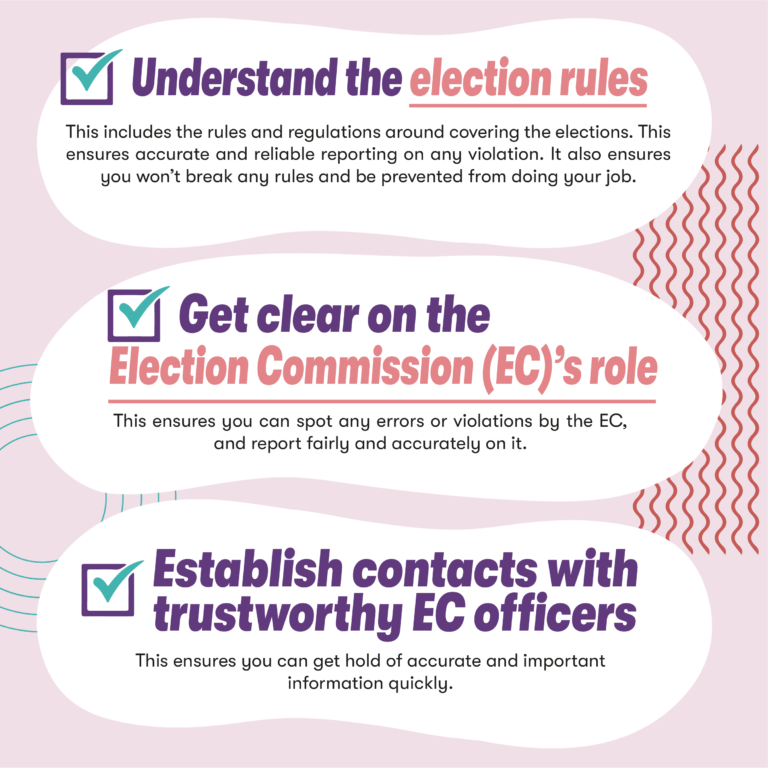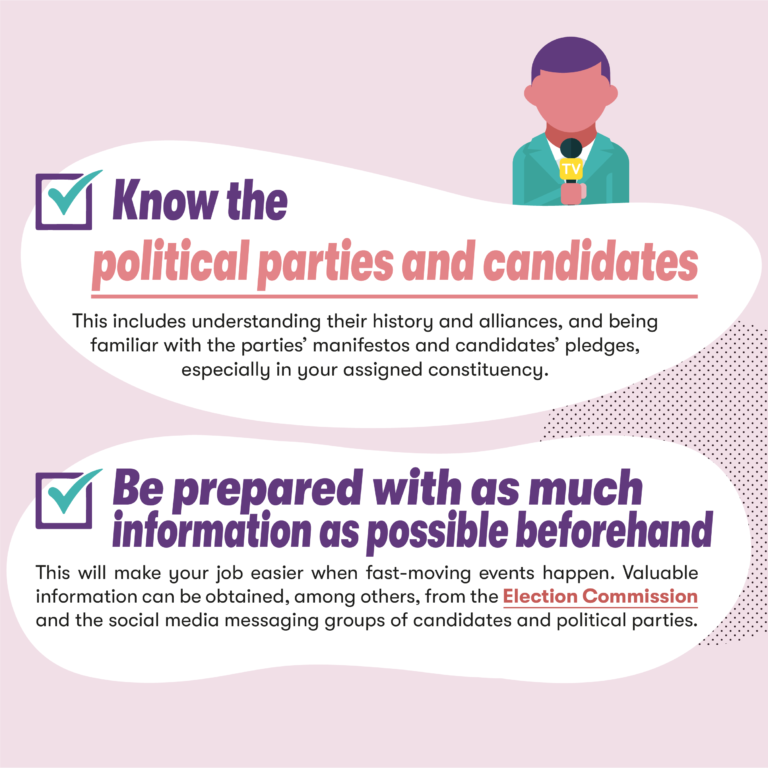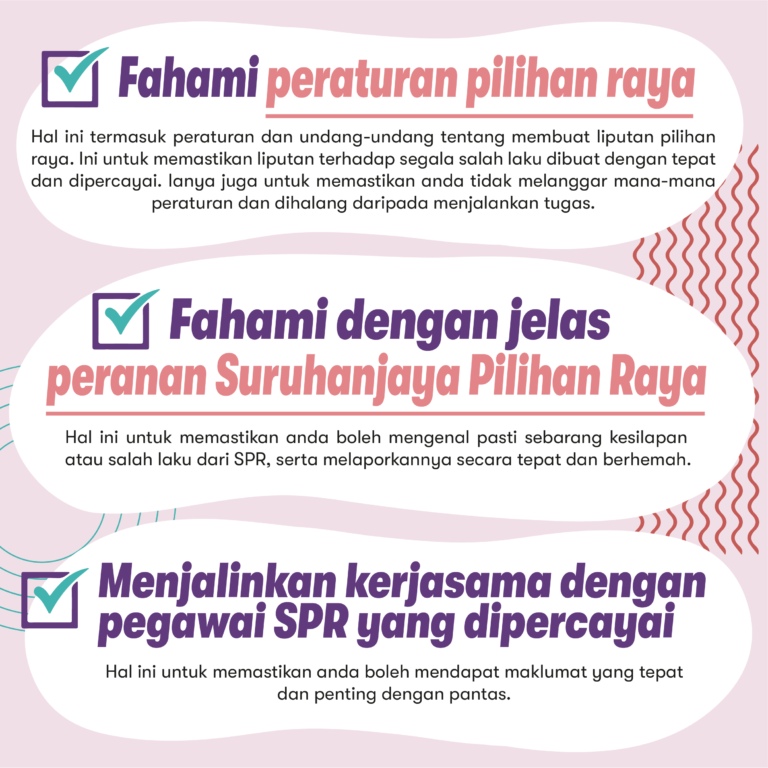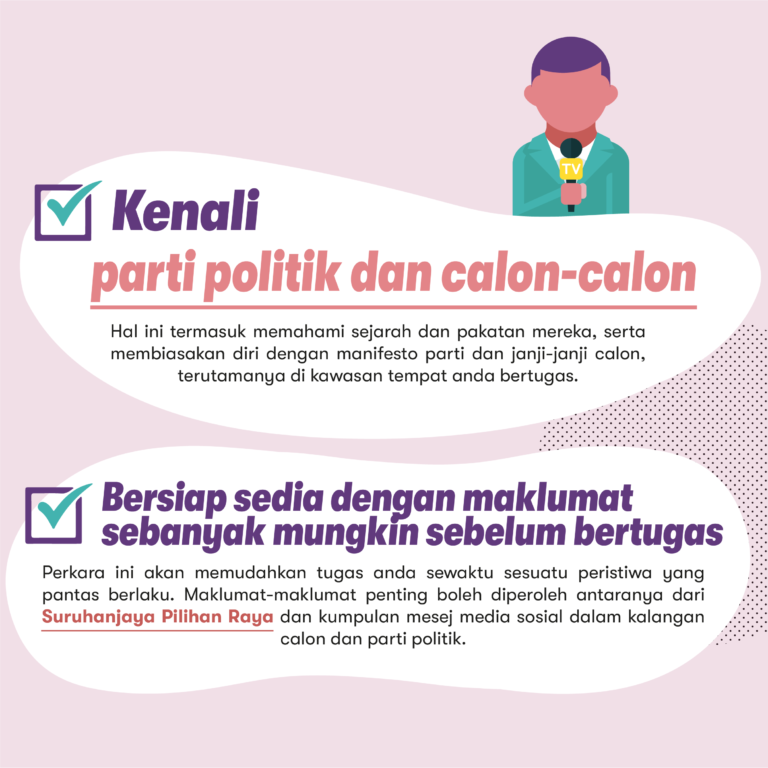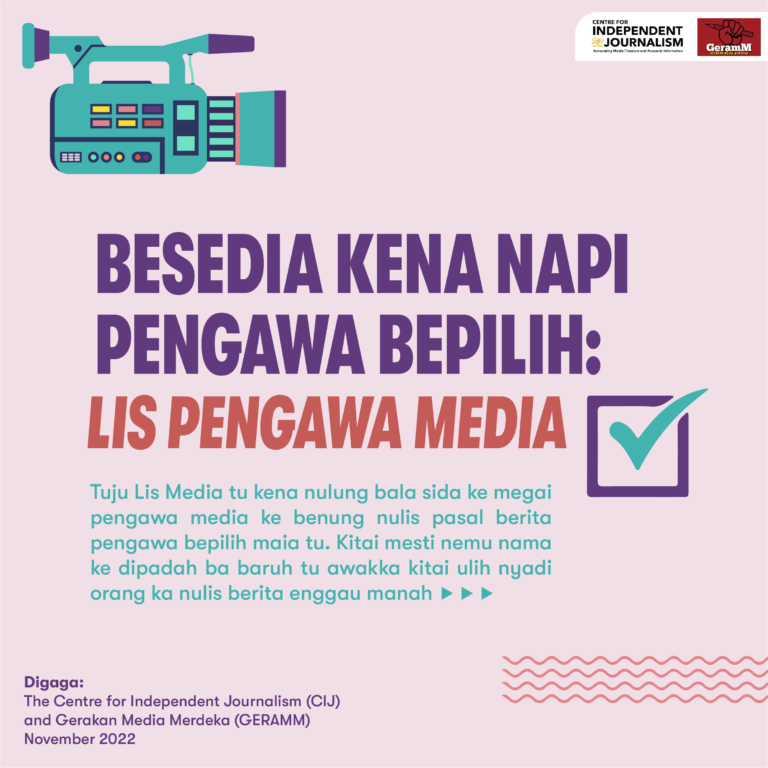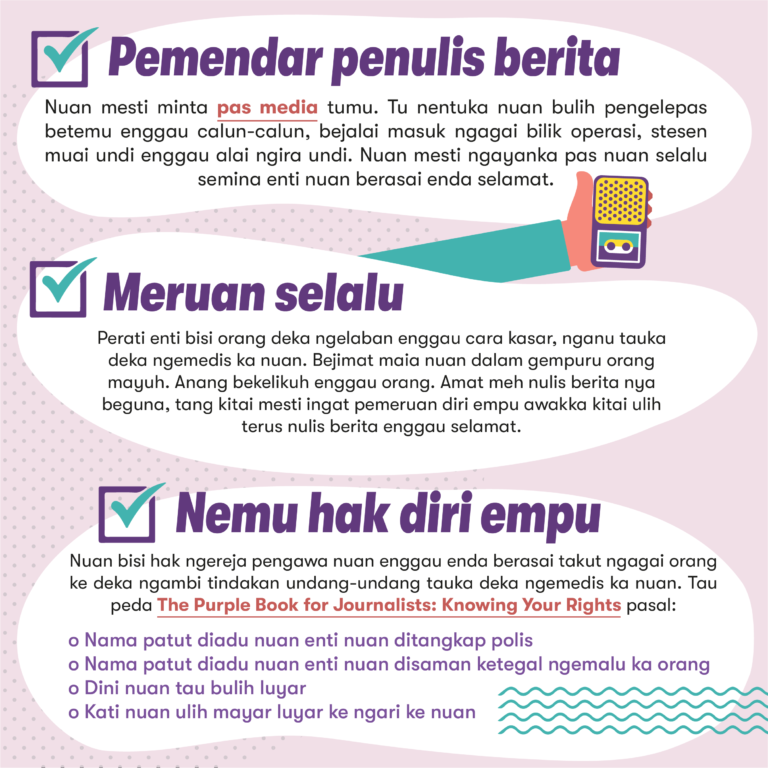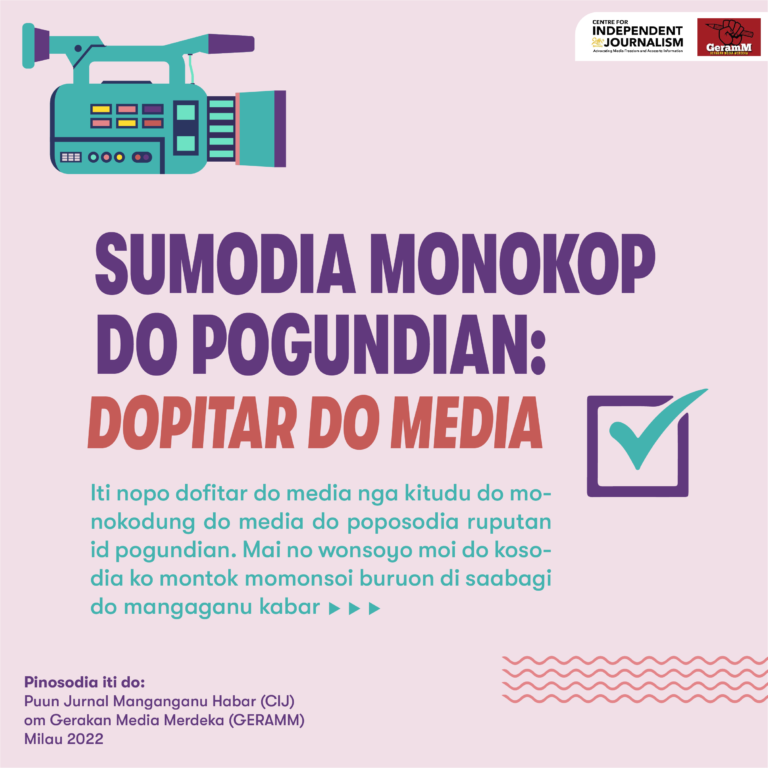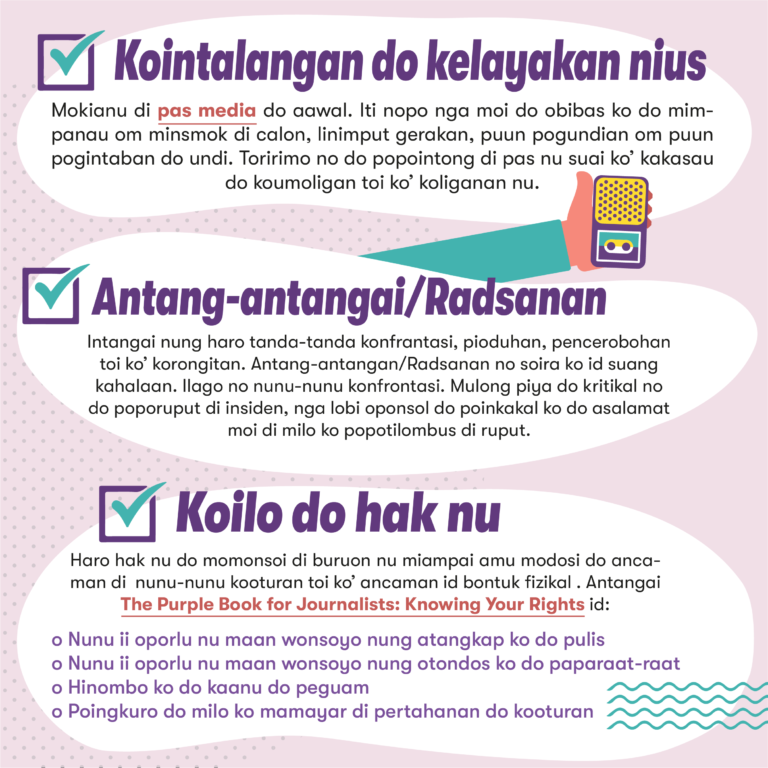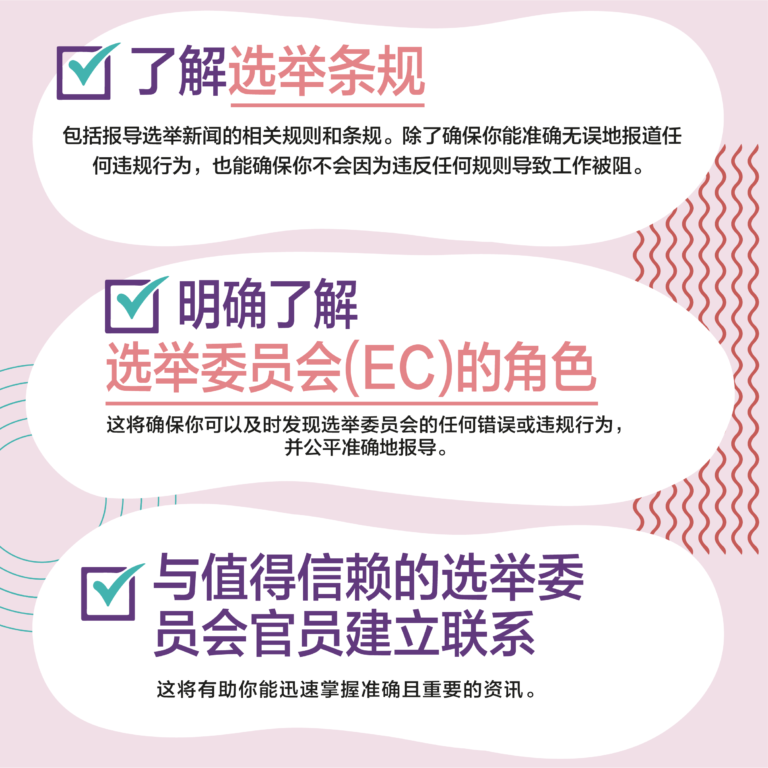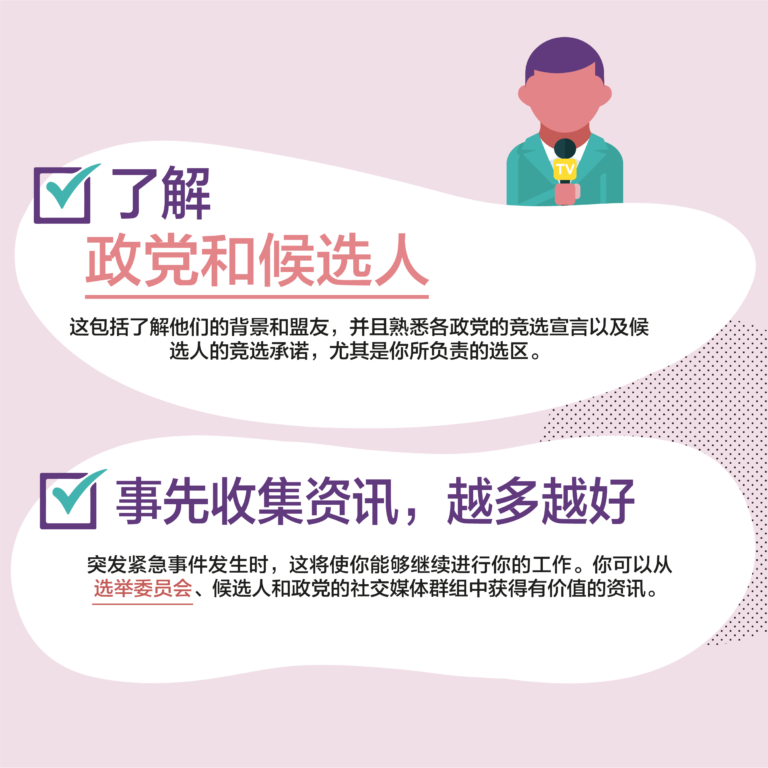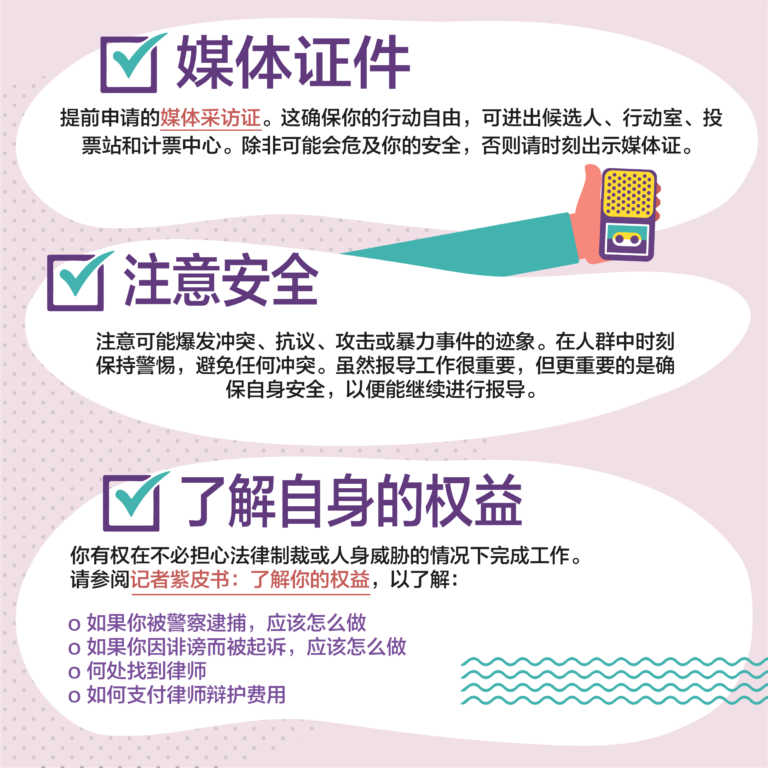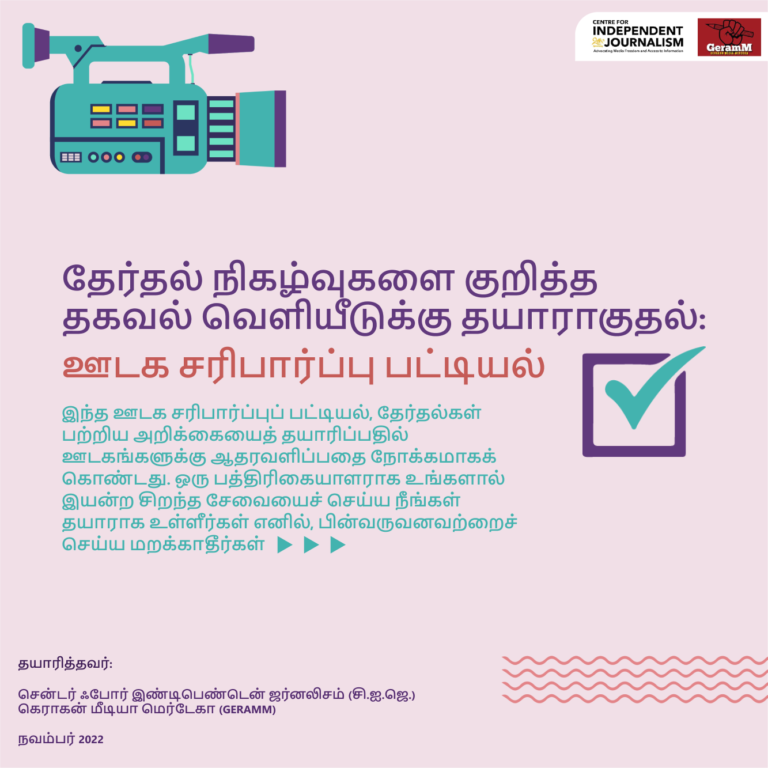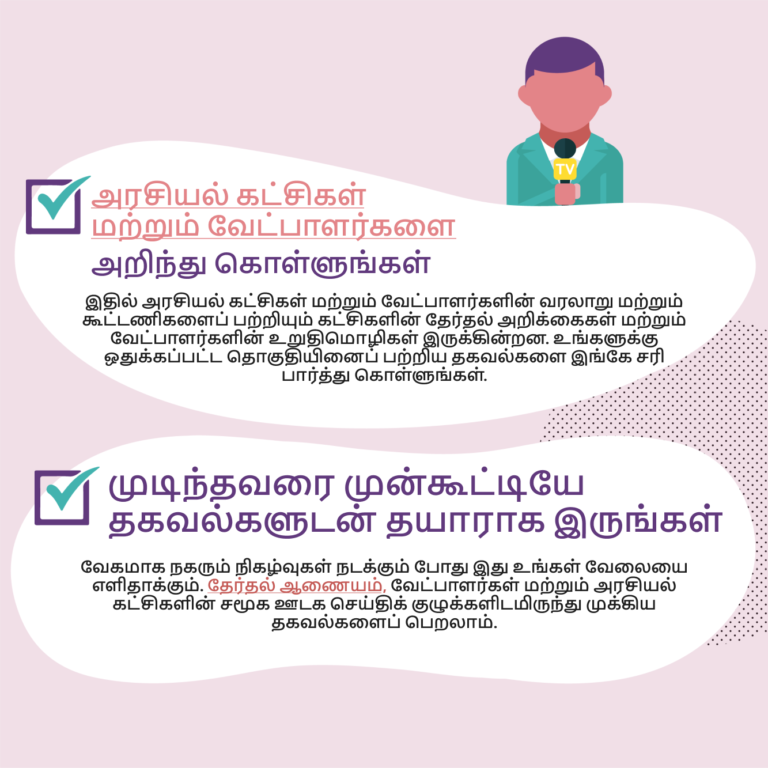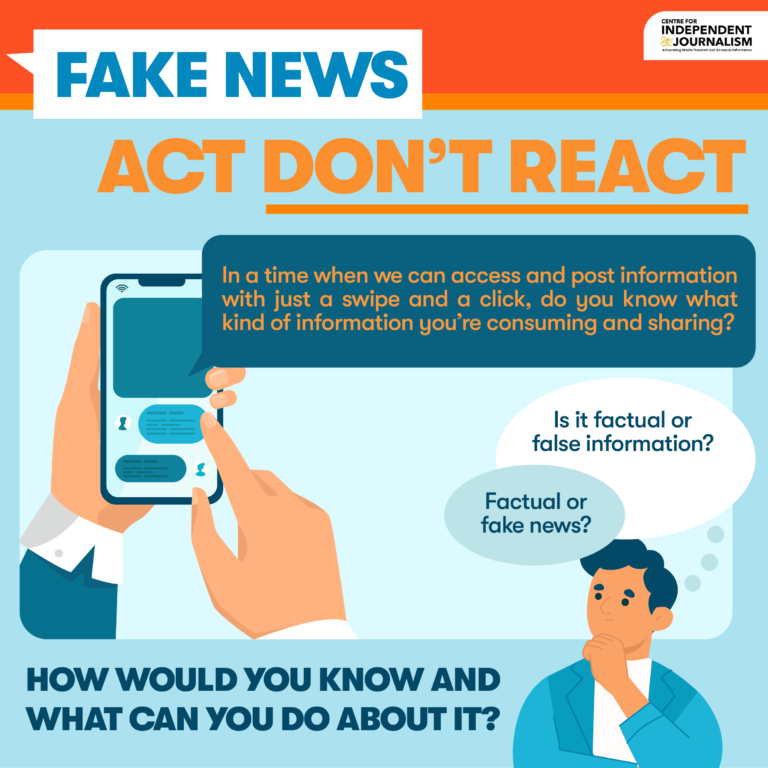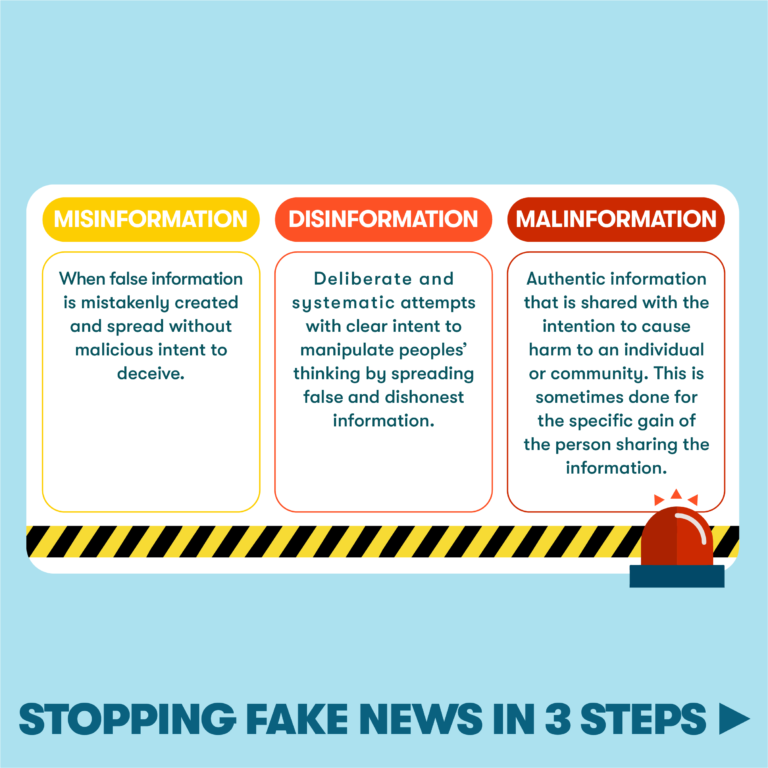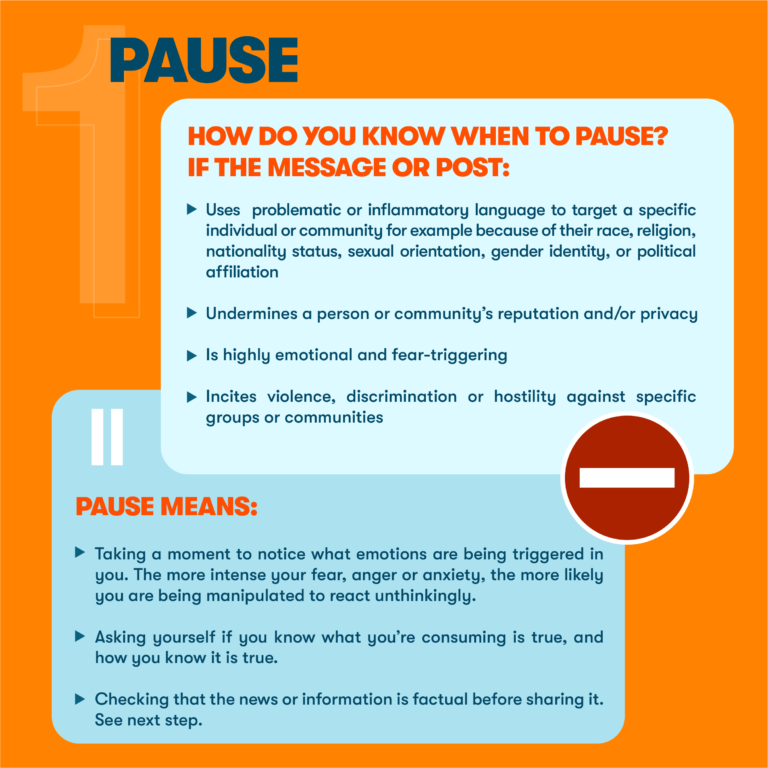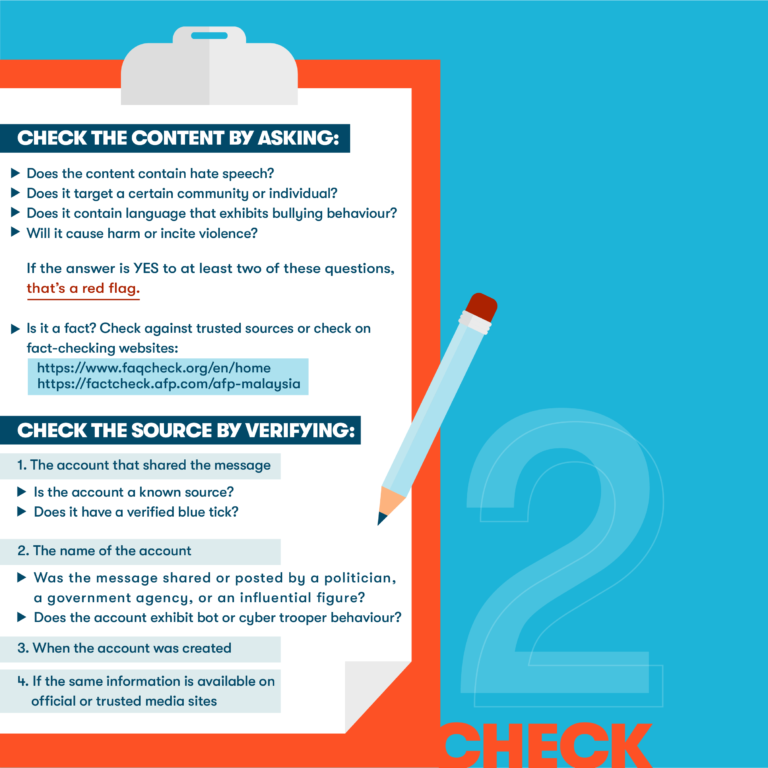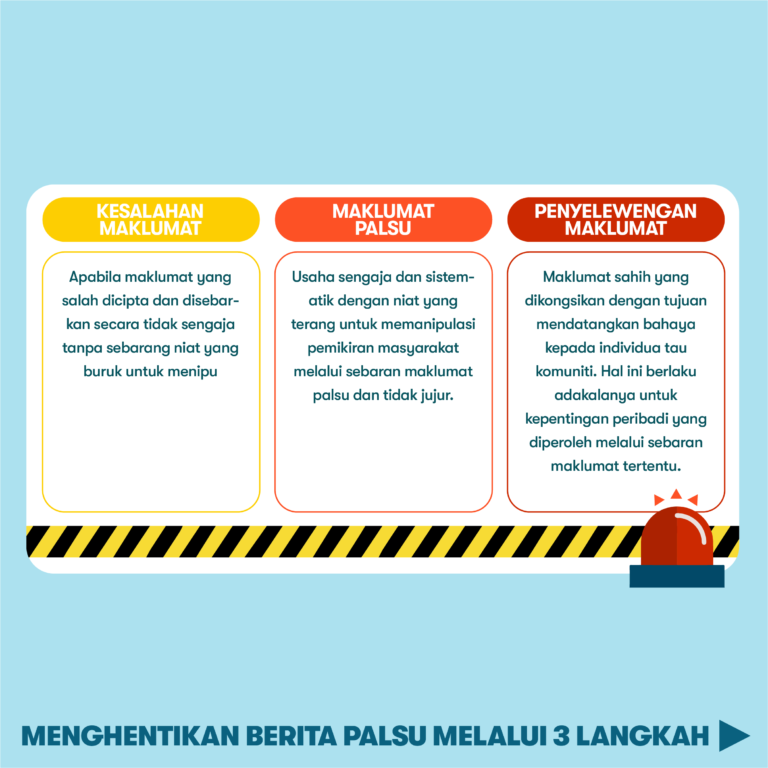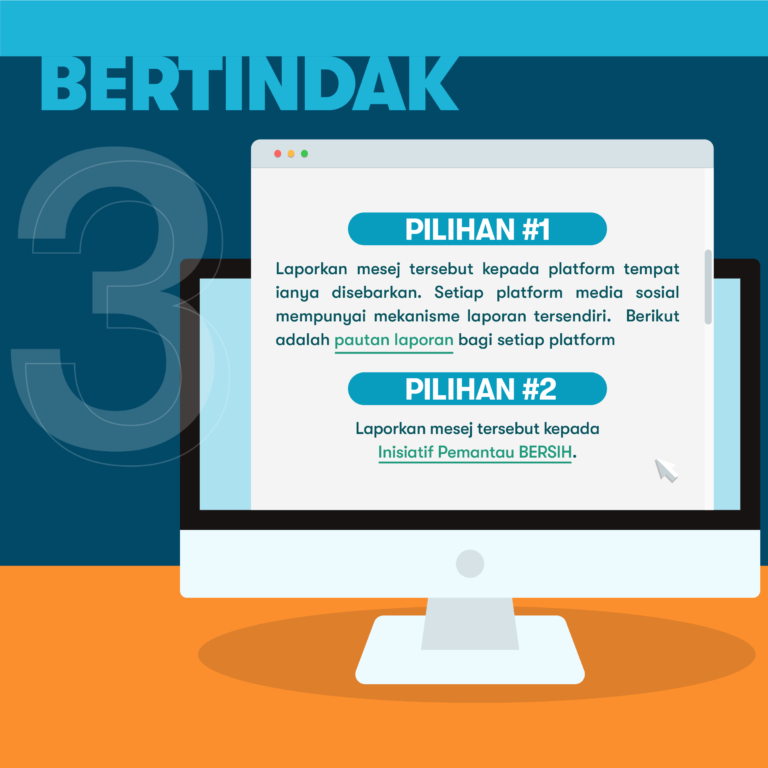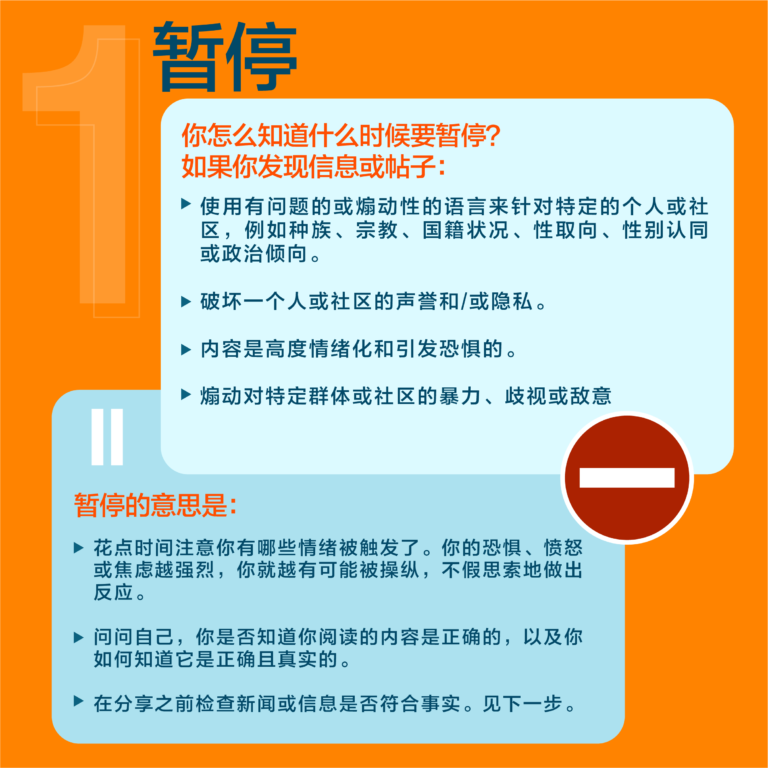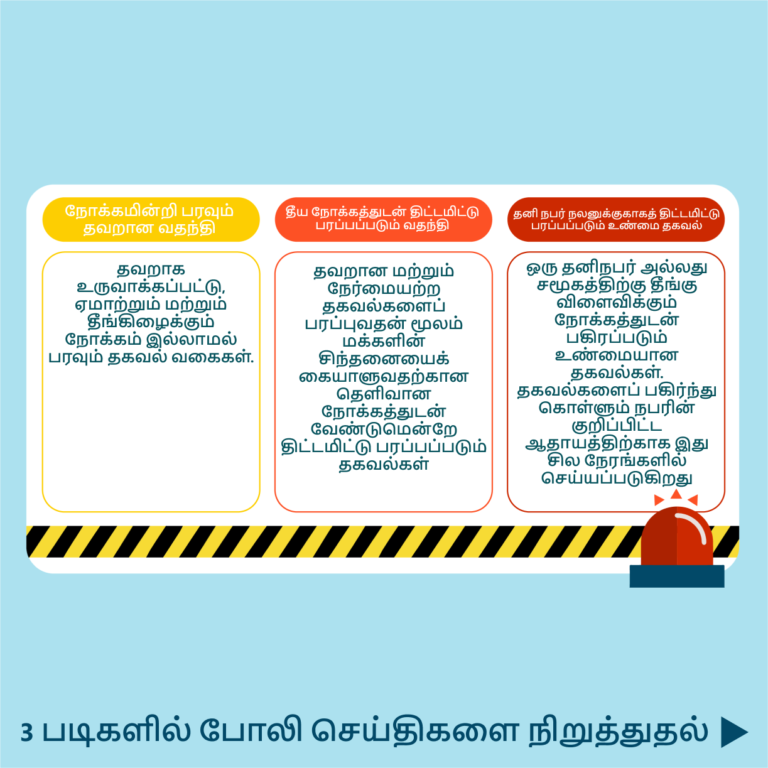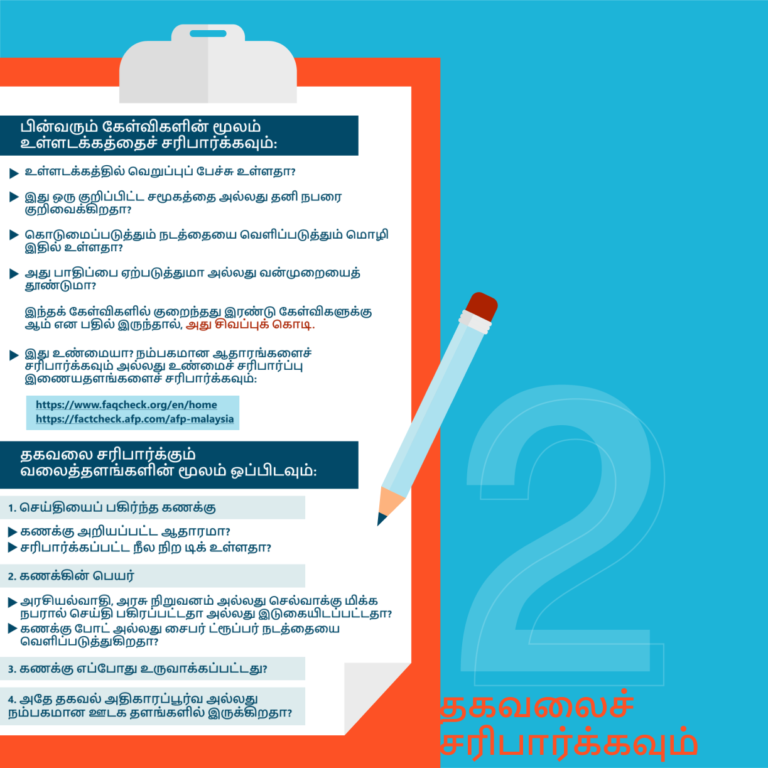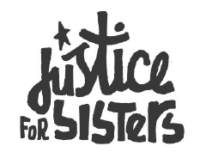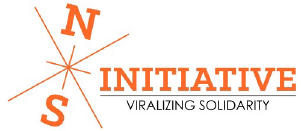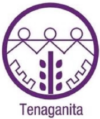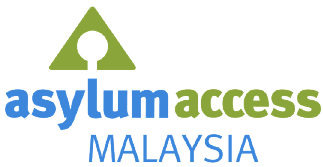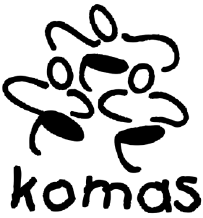Recommendations to the State, Election Commission and Oversight Bodies
1) The government and the Elections Commission (EC) to issue a public statement prohibiting intolerance, discriminatory stereotyping and incitement to hate on the basis of race, religion, royalty, sexual orientation and gender identity, as well as refugee and migrant status;
2) The government, specifically the Ministry of Communications and Multimedia (MCMC), to initiate a public education campaign promoting expressions of healthy and robust debates and opinions, aimed at facilitating and enabling public participation and voter literacy;
Recommendations to political parties and candidates
5) Political parties should adopt and enforce ethical guidelines in relation to the conduct of their candidates, representatives and campaigners, particularly with respect to public speech and incitement to hatred;
6) Political parties and candidates to pledge and prevent the proliferation of messages of intolerance or expressions which may incite violence, hostility or discrimination on the basis of race, religion, royalty, gender, LGBTIQ and refugees and migrants;
7) Political parties and candidates to speak out against any intolerance, discriminatory stereotyping and instances of hate speech.
3) Any legal measures adopted by the State in combating incitement to hatred must be impartial and adopt the three-part test on restrictions to freedom of expression – legality, proportionality and necessity.
The State must avoid being complicit in acts that incite hate towards specific vulnerable and marginalised communities on the basis of race, religion, royalty, sexual orientation and gender identity, as well as refugee and migrant status. To this end, there must be a stop to the use of State apparatus in conducting raids, arrests and detention of LGBTIQ, refugee and migrant communities.
4) In the absence of a Media Council, the EC must issue specific guidelines for media on reporting elections and guarding against hate speech. The EC to also set up an independent multi stakeholder body to address violations and breaches committed by the media during elections. The body is to be entrusted to decide on complaints against a particular media organisation that incite hatred and violence; and empowered to order a right of reply, correction or retraction, if necessary. The EC, the MCMC and the Human Rights Commission of Malaysia (SUHAKAM) should also make accessible mechanisms for the public to report complaints in the case of violations or breaches committed by the media.
Recommendations to the media
8) Media to self-regulate and play a key role in combating proliferation of messages of intolerance or expressions which may incite violence, hostility or discrimination on the basis of race, religion, royalty, gender, LGBTIQ and refugees and migrants by[1]:
